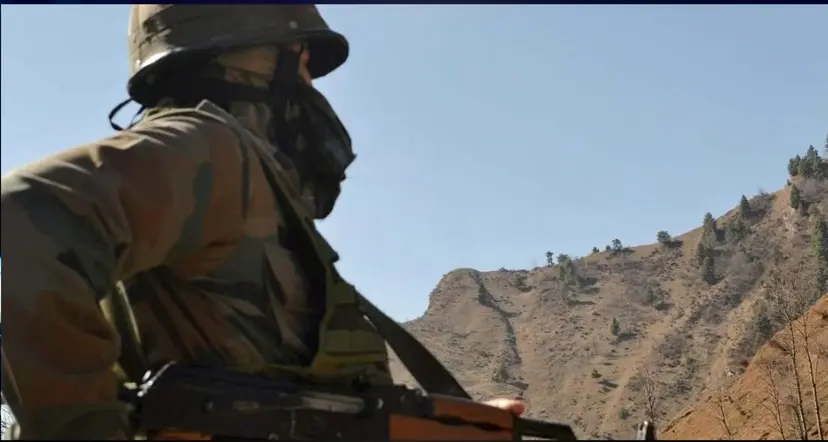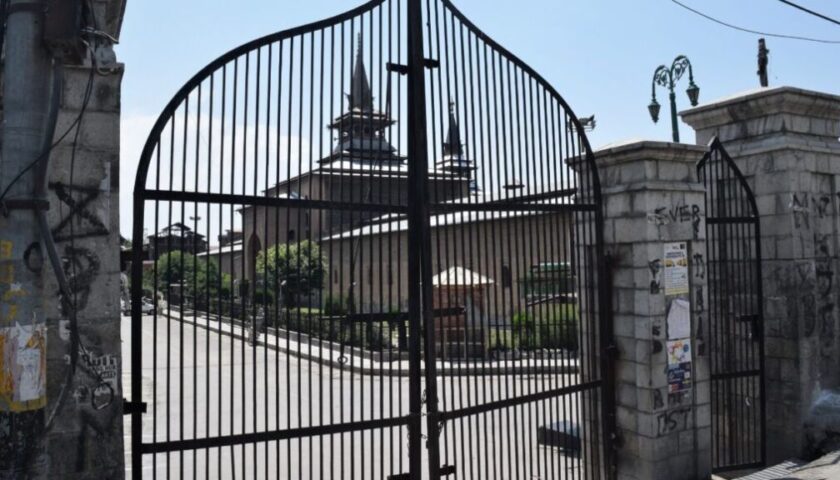Kulgam Police Crack Down on Pakistan-Based Operatives’ Networks in Jammu and Kashmir
By: Javid Amin | 08 November 2025
In a decisive move against cross-border militancy, the Kulgam Police have launched a large-scale crackdown targeting relatives and associates of J&K nationals operating from Pakistan and Pakistan-occupied Kashmir (PoK). The coordinated operation marks one of the most extensive counter-terror initiatives in recent months, aimed at dismantling the logistical backbone of Pakistan-linked terror networks in South Kashmir.
Intelligence-Led Operation Targets Support Network
According to police officials, multiple Cordon and Search Operations (CASOs) were carried out simultaneously across several areas of Kulgam district. Acting on specific intelligence inputs, teams of police, supported by paramilitary forces, raided residences and hideouts of individuals suspected of acting as conduits for Pakistan-based militants.
During the operation, digital devices, mobile phones, and incriminating materials were seized, providing key evidence of continued contact and coordination between certain local elements and handlers across the border.
“We are acting against those who, despite being on this side of the border, are providing ideological, financial, or logistical support to individuals involved in anti-national activities from Pakistan and PoK,”
said a senior police officer involved in the operation.
Relatives and Overground Workers Booked
In a strong message against cross-border facilitation, relatives of known Pakistan-based operatives have been booked under relevant sections of law, including provisions of the Unlawful Activities (Prevention) Act (UAPA). Police have identified a network of Overground Workers (OGWs) who were allegedly aiding communication and funding channels between militants abroad and their sympathizers in Kashmir.
Preliminary investigations suggest that some of these individuals were receiving funds through illegal means, often disguised as personal remittances or trade transactions, to sustain local propaganda and recruitment efforts.
Shift in Counter-Terror Strategy
The Kulgam crackdown highlights a strategic shift in Kashmir’s counter-terror operations — from neutralizing active militants to targeting their enablers and familial networks.
By focusing on the social and financial support chains, security agencies aim to choke the ecosystem that allows militancy to survive despite dwindling numbers of local recruits.
Officials describe this as part of a “zero-tolerance policy” towards anyone maintaining contact with Pakistan-based handlers.
“This is not just about militants hiding in forests. The real challenge lies in the invisible network that sustains them — and that’s what we’re breaking,”
said another police source familiar with the operation.
Digital Evidence Points to Cross-Border Coordination
The raids have unearthed a significant amount of digital evidence, including encrypted communications, social media links, and cross-border contact lists. Police sources revealed that the material points to an organized propaganda and funding network directed by handlers based in Pakistan.
Some of the communications recovered reportedly involve instructions to amplify anti-India narratives online, collect local intelligence, or facilitate cross-border infiltration routes through South Kashmir’s rugged terrain.
Cyber teams are now analyzing the seized devices to trace the digital footprints and financial transactions of the suspects.
Broader Effort to Dismantle Terror Ecosystem
This crackdown in Kulgam forms part of a broader campaign across South Kashmir districts — including Anantnag, Shopian, and Pulwama — where authorities are systematically targeting the “terror ecosystem.”
By focusing on OGWs, funders, sympathizers, and family-based support cells, security forces are seeking to disrupt the multi-layered infrastructure that enables militants to sustain operations remotely from Pakistan.
Police officials emphasized that such actions are not intended to target families indiscriminately, but to ensure accountability for those actively aiding terrorism under familial cover.
Legal Action and Continued Operations
Cases have been formally registered under UAPA and other relevant provisions of the Indian Penal Code (IPC). The Kulgam Police stated that investigations are ongoing, and more arrests could follow based on the digital and financial trails uncovered so far.
The operation, they added, will continue until the entire support infrastructure is dismantled — signaling a sustained campaign through the winter months.
“We are following a proactive model of policing. Instead of waiting for violence to occur, we are targeting its enablers before they can cause harm,”
said Kulgam SSP in an official statement.
Local Reaction: Support and Caution
The crackdown has drawn mixed responses locally. While many residents have welcomed the effort to ensure long-term peace and security, some community members have urged authorities to exercise caution and avoid unnecessary harassment of innocent relatives.
Civil society members have called for transparency and fair investigation, emphasizing that while action against terrorism is necessary, maintaining public trust is equally vital for lasting peace in the region.
National Security Implications
Experts believe that this operation reflects a maturing phase of counter-insurgency strategy in Jammu and Kashmir, one increasingly centered on intelligence, financial tracking, and community-level disruption of terror networks.
By cutting off communication lines and choking funding routes, security forces aim to isolate Pakistan-based handlers and prevent radicalization from taking root in rural Kashmir communities.
According to defense analysts, such measures have already contributed to a steady decline in active militancy and a rise in local intelligence cooperation.
A Message to Pakistan-Based Operatives
The Kulgam operation also serves as a warning to Pakistan-based militants and their facilitators: that Indian agencies are widening the scope of accountability to anyone aiding terrorism, directly or indirectly.
The move underscores a policy shift toward deterrence — signaling that even those living comfortably across the border will see their networks, resources, and local influence gradually dismantled.
Conclusion: A Firm Step Toward Lasting Stability
The latest crackdown in Kulgam is not an isolated event but part of a larger, intelligence-driven campaign to secure South Kashmir from cross-border infiltration and ideological subversion.
By going after the roots rather than just the branches of militancy, the police are sending a clear message: Kashmir’s future lies in peace, not proxy warfare.
As one senior official put it —
“We’re not just chasing militants anymore; we’re dismantling the mindset that breeds them.”




